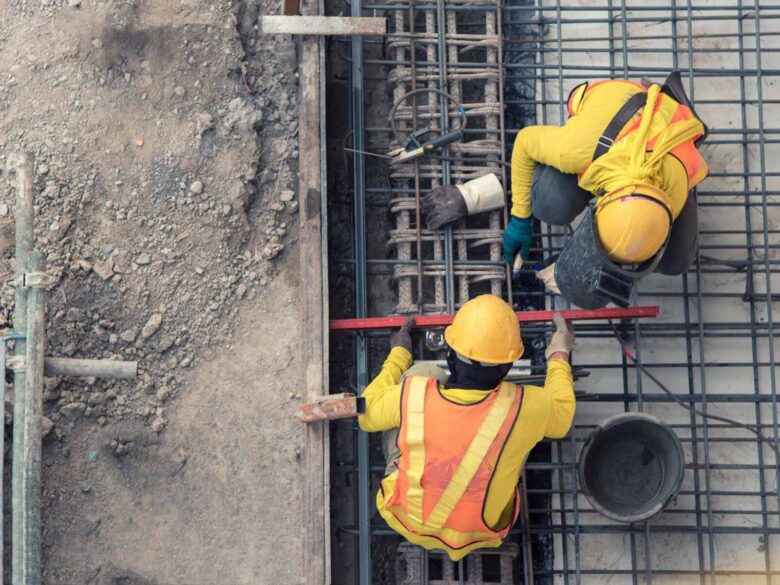A survey has revealed that 33% of construction firms will be looking to win more bids in the upcoming months. With the saturation of bids increasing, investing in workers with the right certifications is a great way to stand out among your competitors.
From maintaining a safe construction environment to following the correct safety protocols, there are several certification programs you can choose from for workers to have. The construction industry is evolving rapidly and obtaining certifications will make it easier to achieve growth.
Having certified workers ensures that your firm follows the right protocols to operate. It will also make sure that you have the suitable professional skills on site that are required to work in the construction industry.
However, verifying every certification can be a tedious process. Fortunately, reputable solutions like the SmartBarrel device make managing certifications a whole lot easier.
Here, we’ve compiled some of the most in-demand certifications you as a constructor need to have for your firm. We’ll also be discussing how workers can get them and their impact on the construction industry.
What exactly are certifications in the construction industry?

Certifications in the construction industry refer to any credential or certificate awarded to individuals who have met specific requirements. Having certified workers can also indicate that your particular construction firm has the criteria to stand out as the safest worksite.
Various organizations set these requirements, and you will need to be familiar with them. They include OSHA regulations, local building codes, and state safety laws.
There are many benefits to having certifications in the construction industry. Some of the benefits include increased earning potential, job security, and employment opportunities.
9 in-demand certifications in the construction industry
Here are some of the most important certifications for the construction industry.
1. Safety Manager (CSM)

This certification is for those who want to pursue a safety management role in the construction industry. The program provides an overview of safety management concepts, tools, and techniques, as well as hands-on training in safety management systems.
The National Association of Safety Professionals (NASP) conducts a 40-hour course to study for CSM. Prior knowledge of workplace safety is important here.
3. Aerial Lift Training
OSHA provides aerial lift training certifications to employees in the construction industry. This type of training is becoming more and more popular as employers realize the benefits of having trained workers. Workers who have received aerial lift training can perform a wider range of tasks, including moving heavy objects, lifting and carrying heavy objects, and working at augmented heights.
4. Certified Construction Manager (CCM)
The Certified Construction Manager (CCM) certification program is designed to certify individuals who have demonstrated skills and knowledge in the area of construction management. The program covers topics such as project planning, budgeting, scheduling, quality control, and safety.
5. Outreach Training Program (OSHA)

The OSHA Outreach Training Program provides information and training to help employers comply with OSHA standards. Initially, you can take either a 10-hour or 30-hour course.
The program provides information on occupational safety and health hazards, OSHA standards, and how to comply with OSHA regulations. With the implementation of this program, a 50% reduction in workplace fatalities has been reported.
6. American Concrete Institute (ACI)
American Concrete Institute certificates remain the most acknowledged in the construction industry, with more than 550,000 registered professionals. The organization has plenty of certifications, including inspection, testing, and the construction of projects using concrete.
7. Crane Operation Certification
National Commission for the Certification of Crane Operators (NCCCO) conducts examinations to obtain crane operation certifications. The purpose of certification is to ensure that the operator can maneuver a crane safely with minimal risk of injury to themselves and others.
8. American Institute of Constructors (AIC/CPC)

AIC offers two types of constructor certification programs: Associate Constructor (AC) and Certified Professional Constructor (CPC). To earn the CPC designation, applicants must take a test and work on a construction project through to its completion.
The construction project can be completed during or after the classroom training. To earn the AC designation, applicants must also take a test and pass a written examination. There are no prerequisites for either program; however, prior knowledge about construction management is recommended.
9. Green Business Certification (LEED)
By the end of 2030, the green building industry is estimated to have a worth of at least $103 billion. Because of this, many contractors are ensuring they’re proficient in sustainable design.
The LEED certification system is used by a number of companies and government entities to indicate a contractor’s proficiency in green design. Sustainable design can help protect our environment and save money on energy costs.
Green building techniques include recycled materials, renewable resources, and natural light. LEED green business certification can be your ultimate guide to learning more about sustainable projects.
How to manage certifications in the construction industry

Managing certifications for every skill might be a daunting task at times—however, construction software and tools with certification management can be helpful in such cases, helping you manage certificates all in one place.
You won’t have to worry about losing certificates or misplacing them since they’ll be located in a centralized location. Additionally, you can set reminders about the expiration of these certificates and have them renewed before any mishaps occur.
Certifications are a method of prevention
The construction industry is full of hazards. Thus, proper measures are required to overcome these dangers. The right certification can give you the skills and knowledge you need to stand out in the industry and help you to stay safe on site.


